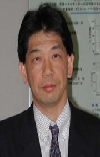
Shigeru Goto
Kaohsiung Chang Gung Memorial Hospital, Taiwan
Title: Mechanisms of rejection and tolerance from an aspect of autoimmunity
Biography
Biography: Shigeru Goto
Abstract
Recent proteomic approach allows us to target on specific molecules underlying the common mechanism between experimental and clinical liver allograft tolerance. A novel insight has been gained since we found that post-transplant autoimmune responses with high titer of anti-nuclear antibodies against histone H1 and high mobility group box 1 (HMGB1) play an important role in the rejection and tolerance in both experimental and clinical settings. Our previous studies demonstarated that either treatment of recipient rats with commercially available anti-histone H1 polyclonal antibody (Ab) or immunization with calf thymus histone H1 could prolong allograft survival in heterotopic heart transplantation. We have also reported that the induction of autoimmune hepatitis during acute rejection could prolong the liver allograft survival of rats in an acute rejector liver-transplant model. Immunologically, the blockade of histone H1 modulated dendritic cells toward tolerogenic status, decreased the cytotoxicity of lymphokine activated killer and natural killer cells, and induced CD4+CD25+ regulatory T cells. For further analysis of this mechanism, we generated an immunosuppressive monoclonal Ab against histone H1 (16G9 mAb) and determined one peptide (designated SSV) that binds directly to 16G9 mAb. The binding of SSV to 16G9 mAb or serum of both tolerogeneic OLT rats and clinical drug-free OLT patients, was inhibited by histone H1. Furthermore, SSV mAb or immunization of mice with SSV induced immunosuppression in serum,suggesting that SSV was an epitope responsible for the immunosuppressive activity of 16G9 mAb. SSV mAb and peptide SSV will allow us to establish a novel diagnostic and therapeutic strategy in transplantation. This presenation reviews our work exploring how the autoimmune response against nuclear proteins is involved in transplantation immunology.

